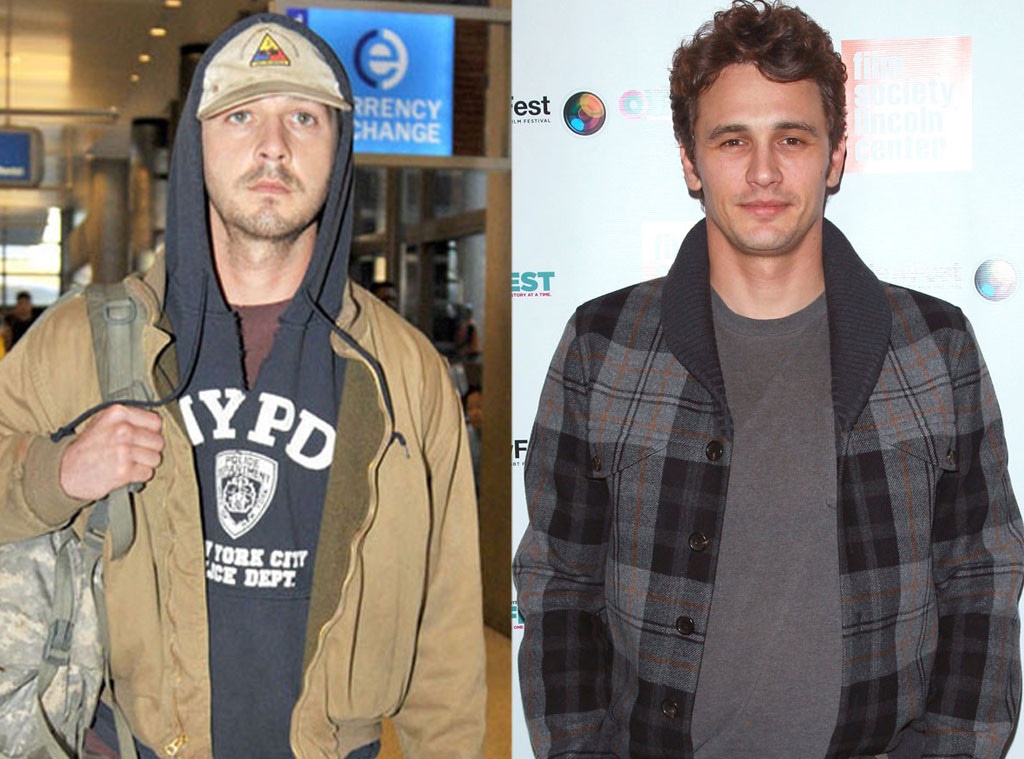 Splash News; Jim Spellman/WireImage
Splash News; Jim Spellman/WireImageJames Franco shared some insight into why an actor—like Shia LaBeouf—might feel the need to act out in a very public way.
In a New York Times op-ed published Wednesday, Franco admitted that while "the wisdom of some of [LaBeouf's] actions may seem questionable," he is, as "as an actor and artist," inclined "to take an empathetic view of his conduct."
The questionable behavior Franco is referring to includes LaBeouf wearing a bag over his head to a Nymphomaniacs premiere, his #IAMSORRY live art exhibit in L.A. and earlier plagiarism admissions. In terms of the latter, Franco wonders, "Was that clever or pathological?"
Franco, 35, doesn't know specifically the reason behind LaBeouf's "recent erratic behavior," pointing out that it "could be a sign of many things, from a nervous breakdown to mere youthful recklessness." The Oscar-nominated actor hopes "it is nothing serious," and that 27-year-old LaBeouf's "actions are intended as a piece of performance art, one in which a young man in a very public profession tries to reclaim his public persona."
Any artist, Franco writes, "can experience distance between the true self and his public persona," and because "film actors typically experience fame in greater measures," their "personas can feel at the mercy of forces far beyond our control."
"Our rebellion against the hand that feeds us can instigate a frenzy of commentary that sets in motion a feedback loop: acting out, followed by negative publicity, followed by acting out in response to that publicity, followed by more publicity, and so on," states Franco in the New York Times piece.
"Participating in this call and response is a kind of critique, a way to show up the media by allowing their oversize responses to essentially trivial actions to reveal the emptiness of their raison d'être," he continues, noting from experience that "this game of peek-a-boo can be very addictive."
Franco also points out that LaBeouf "has been acting since he was a child," and that an actor in that situation might often feel the "need to dear down the public creation that constrains him" during the "transition from young man to adult."